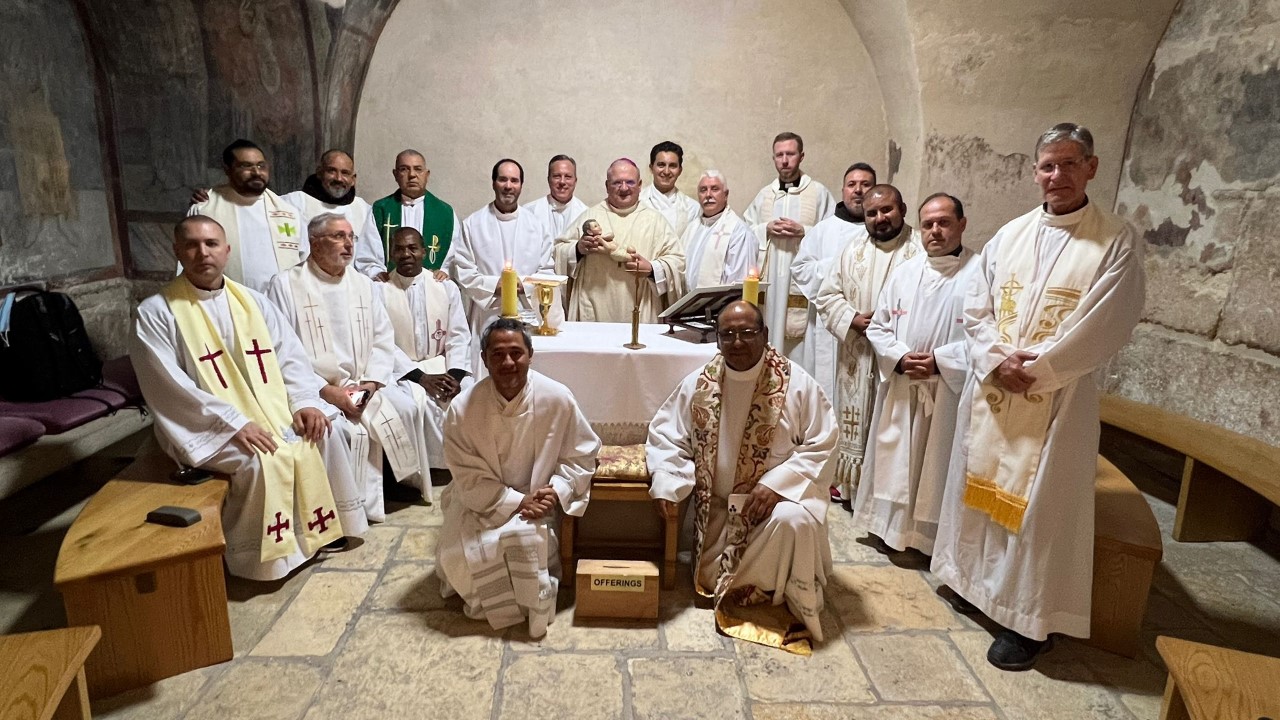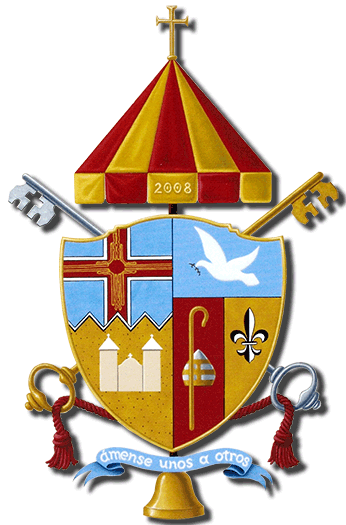The Roman Catholic Church has seven holy sacraments that are mystical channels of divine grace, instituted by Christ. Each is celebrated with a visible rite, which reflects the invisible, spiritual essence of the sacrament. Whereas some sacraments are received only once, others require active and ongoing participation to foster the living faith of the recipient.
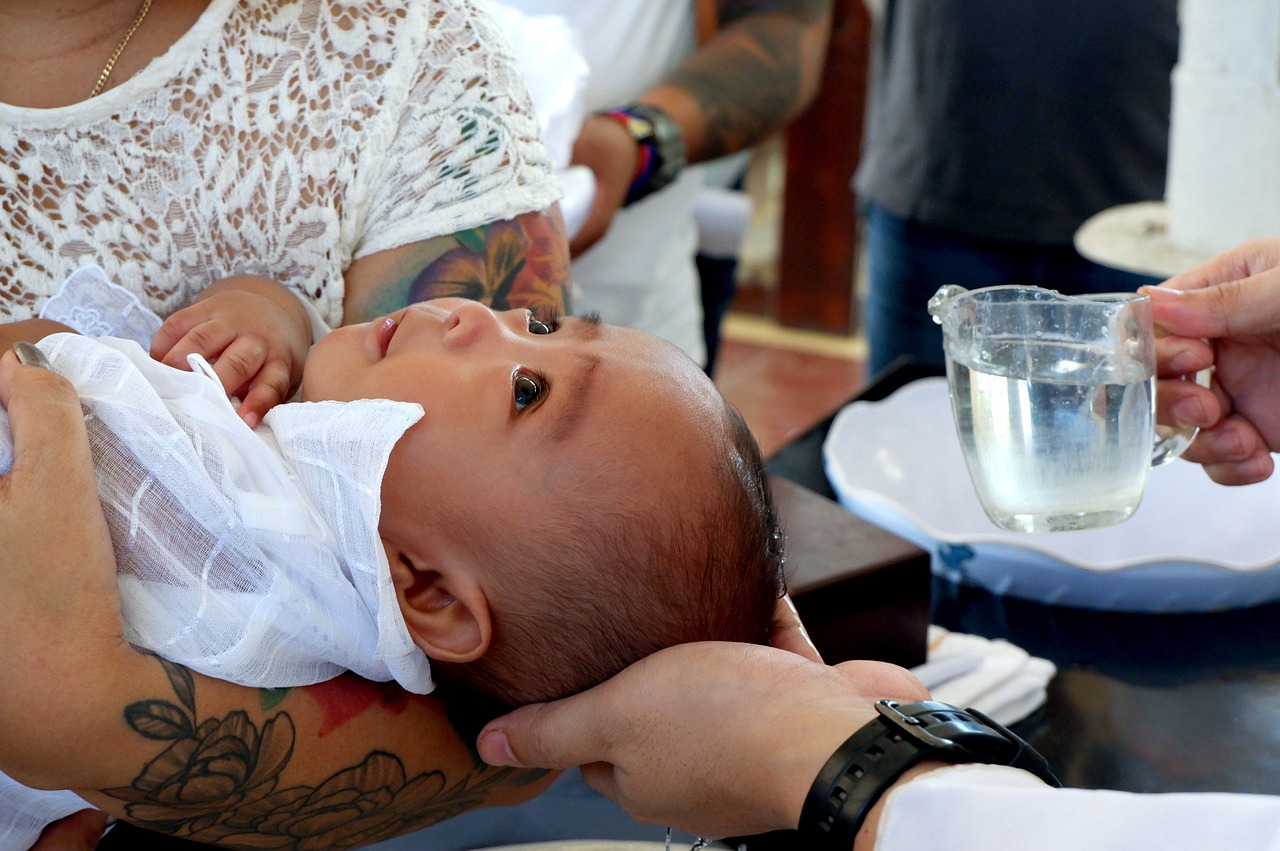
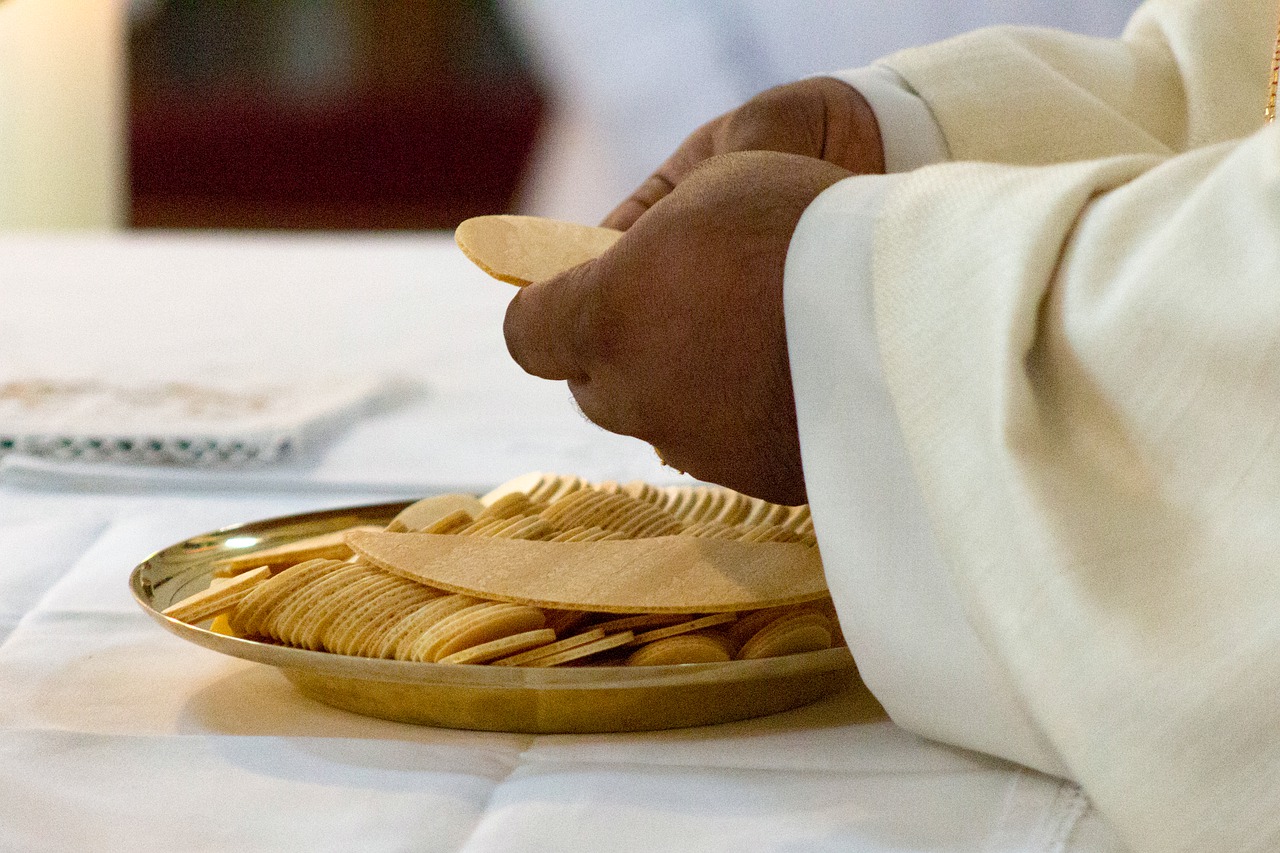

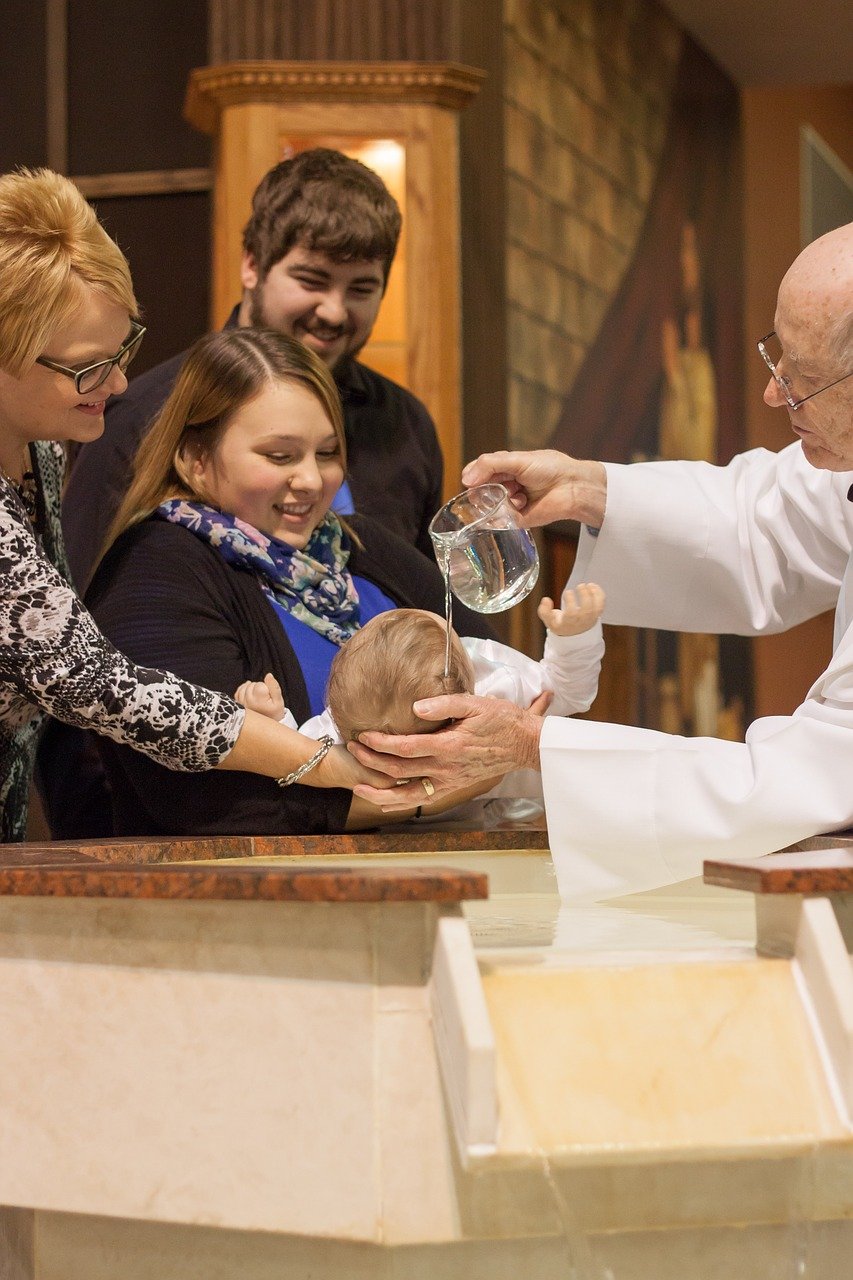
Baptism is seen as the sacrament of admission to the faith, bringing sanctifying grace to the person being baptized. In Catholicism the baptism of infants is the most common form, but unbaptized children or adults who wish to join the faith must also receive the sacrament. A person is to be baptized only once in their life, and the Catholic Church recognizes baptisms done by most other Christian denominations as valid.
The Rite of Christian Initiation are three sacraments that are received together: Baptism, Eucharist, and Confirmation. They can also be received separately, although Baptism and Confirmation are only received once, the Eucharist can be received daily.
There are two sacraments of healing: Reconciliation and Anointing of the Sick, which can be received as often as needed. The last two sacraments deal with one's vocation: Marriage or Holy Orders.
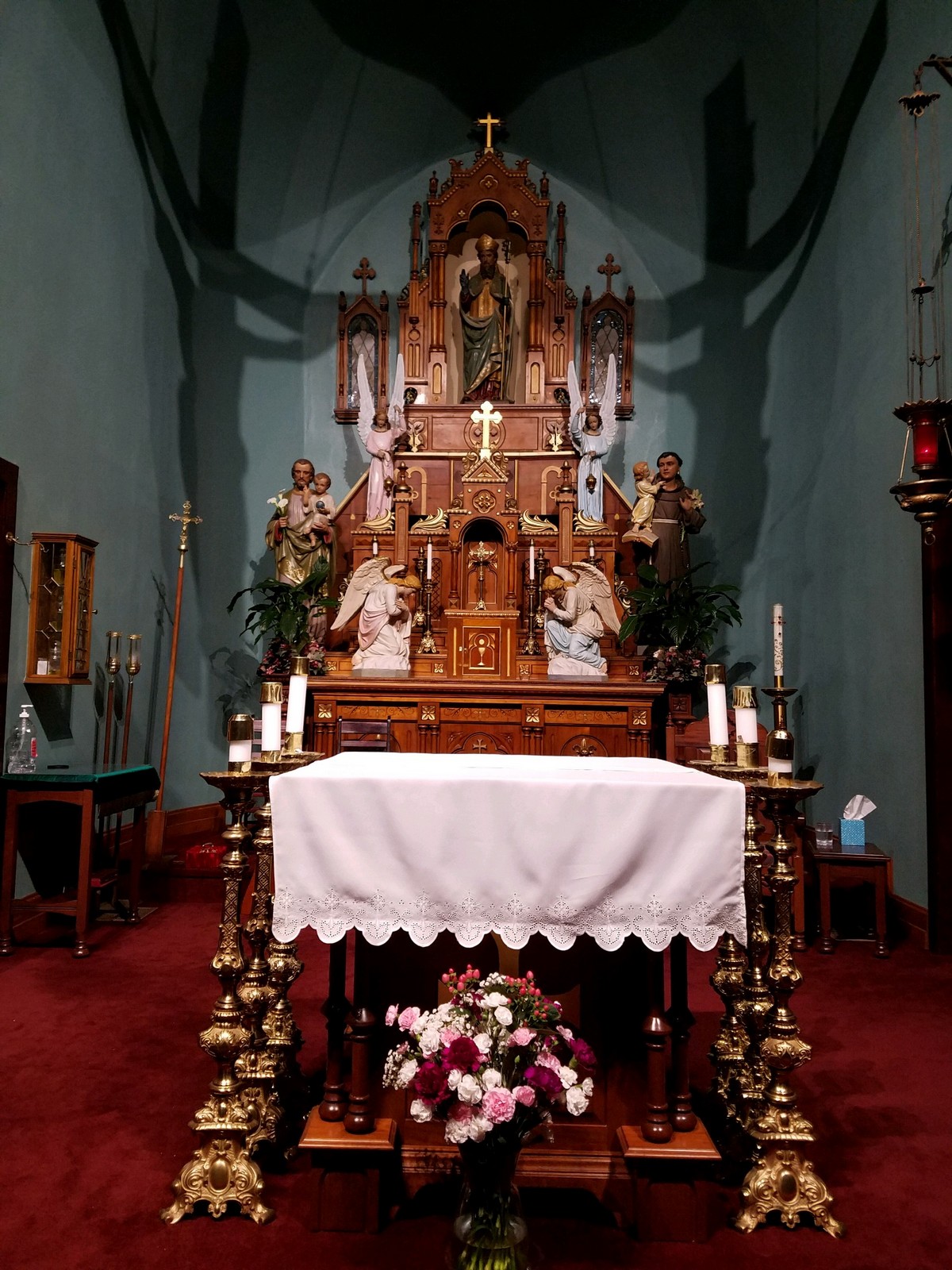
The Eucharist is the source and summit of the Christian life. The Eucharistic Liturgy is the renewal of the sacrifice of Jesus Christ established at the Last Supper. With his passion he accomplished his work of salvation, offering himself to the Father, for us, on the altar of the Cross. He completed his work of redemption with his glorious resurrection.
The Eucharist is the living presence of Christ in the consecrated elements of bread and wine, which are transformed into his Body, Blood, Soul, and Divinity. We know this to be correct; that he is truly present in the Eucharist, because of Scripture and Tradition.
Confirmation is the third sacrament of initiation and serves to "confirm" a baptized person in their faith. The rite of confirmation can occur as early as age 7 for children who were baptized as infants but is commonly received around age 13; it is performed immediately after baptism for adult converts.
Reconciliation is a means of obtaining pardon from God for sins for which the sinner is truly remorseful, and brings the sinner back into communion with God and the Church. The sacrament is an opportunity for self-reflection and requires that the person take full responsibility for his or her sins, both those in thought and in action.

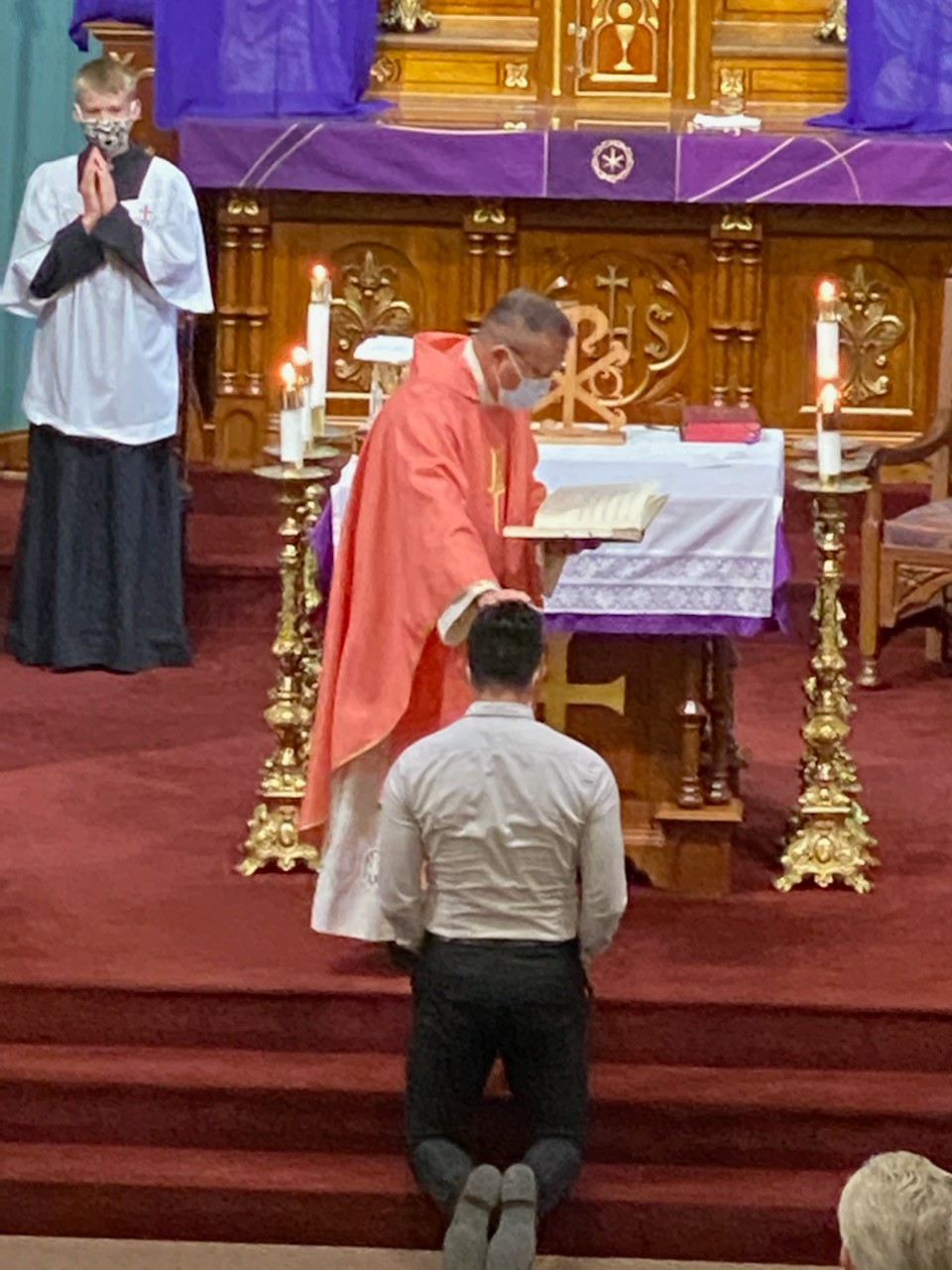
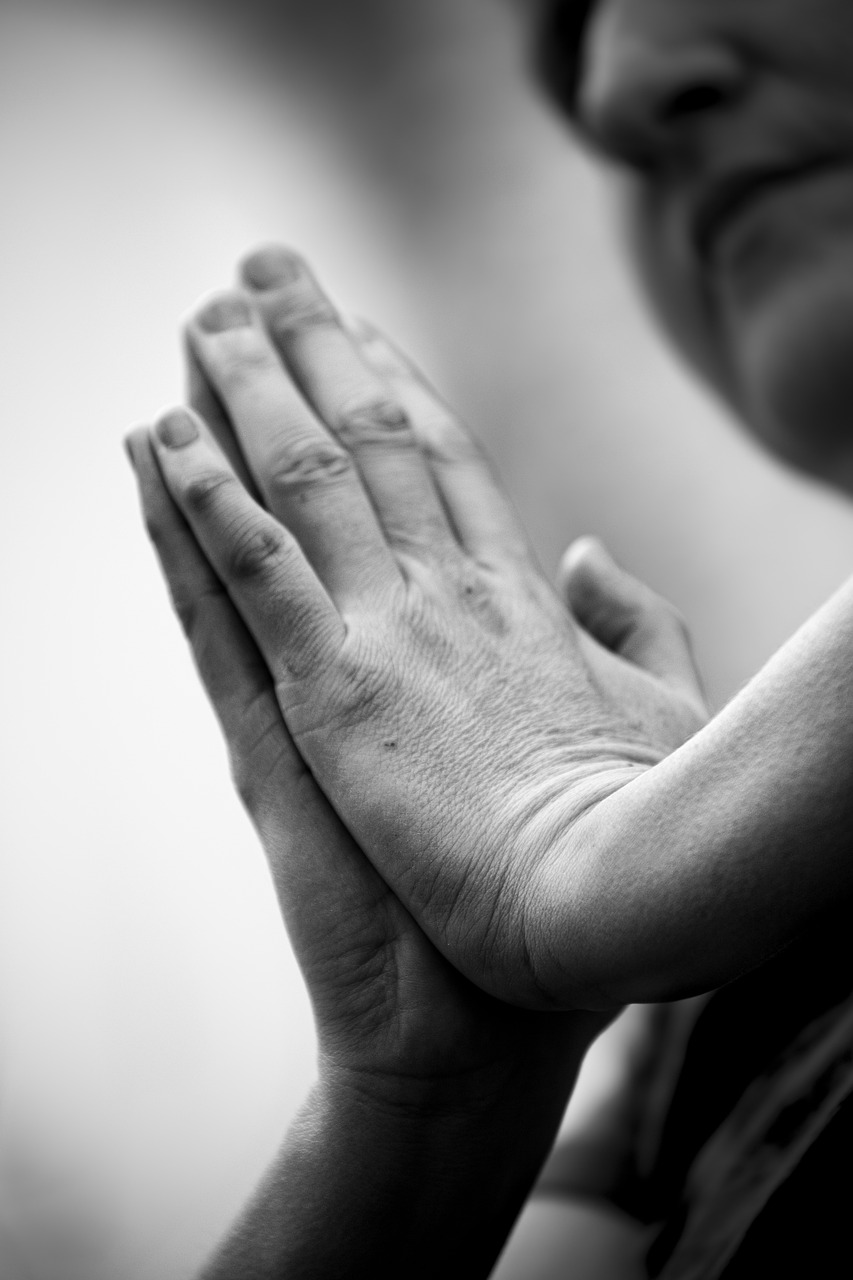
Anointing of the Sick, formerly known as Extreme Unction, is a sacrament that is administered to give strength and comfort to the ill and to mystically unite their suffering with that of Christ during his Passion and death. This sacrament can be given to those who are afflicted with serious illness or injury, those who are awaiting surgery, the weakened elderly, or to ill children who are old enough to understand its significance.
In Catholicism marriage is a sacrament that a baptized man and a baptized woman administer to each other through their marriage vows and lifelong partnership.

Ordination, or Holy Orders, is a sacrament that is available only to men who are being ordained as deacons, priests, or bishops.
